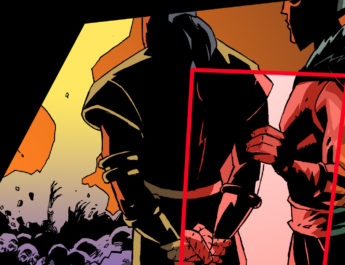Matthew 27:57-66
Dark Saturday ABC
Dark Saturday – A Women’s Lectionary
57 When it wasA evening,B there cameC
A “was” = ginomai. This is to come into being, to happen, become, be born. It can be to emerge from one state or condition to another or is coming into being with the sense of movement or growth.
B “evening” = opsios. 15x in NT. From opse (after, late, in the end, in the evening); from opiso (back, behind, after); from the same as opisthen (after, back, from the rear); probably from opis (back); optanomai (to appear, be seen by); from horao (become, seem, appear). This is afternoon, evening, nightfall, or late.
C “came” = erchomai. This is to come or go.
D “rich” = plousios. From ploutos (abundance, wealth, or riches; money, possessions, spiritual abundance, or a valuable bestowment); from polus (much, many, abundant) OR pleo (to sail, voyage); {probably from pluno (to plunge – so to wash); from pluo (to flow)} OR pletho (to fill, accomplish, supply; to fill to maximum capacity). This is wealthy, having full resources. It can be a rich person or refer to God’s abundance.
E “man” = anthropos. Related to “evening” in v57. Probably from aner (man, male, husband) + ops (eye, face); {from optanomai (see note B above)}. This is human, humankind. Used for all genders.
F “Arimathea” = Harimathaia. 4x in NT. From Hebrew compare Ramah (Ramah, height); from rum (to be high, rise, exalt self, extol, be haughty; to rise literally or figuratively). This is Arimathea, a city by Jerusalem.
namedG Joseph,H who also was himself a discipleI of Jesus.J
G “named” = tounoma. 1x in NT. From ho (the) + onoma (a name, authority, cause, character, fame, reputation); may be from ginosko (know, recognize, learn from firsthand experience). This is by name.
H “Joseph” = Ioseph. From Hebrew Yoseph (he increases; Joseph); from yasaph (to add, increase, continue, exceed). This is Joseph, meaning “he increases.”
I “was…a disciple” = matheteuo. 4x in NT. From mathetes (a disciple, learner, or student). This to be, make, or train a disciple. It is the same root that “mathematics” comes from.
J “Jesus” = Iesous. From Hebrew Yehoshua (Joshua, the Lord is salvation); {from YHVH (proper name of the God of Israel; the self-existent and eternal one); {from havah (to become) or from hayah (to come to pass, become, be)} + yasha (to deliver, defend, help, preserve, rescue; properly, to be open, wide or free, which implies being safe. So, in a causative sense, this is to free someone)}. This is Jesus or Joshua in Greek – the Lord saves or the Lord is salvation.
58 He wentK to PilateL and asked forM
K “went” = proserchomai. Related to “came” in v57. From pros (for, at, towards) + erchomai (see note C above). This is to approach, draw near, come up to. It is also used figuratively to mean worship.
L “Pilate” = Pilatos. From Latin Pilatus (may mean one who has skill with a javelin); perhaps from pilum (javelin) OR perhaps from pileus (a soft cap made of felt that was brimless and was associated with people who were freedmen). This is Pilate. See https://en.wikipedia.org/wiki/Pontius_Pilate
M “asked for” = aiteo. This is to ask, demand, beg, desire.
the bodyN of Jesus; then Pilate orderedO it to be givenP to him.
N “body” = soma. Perhaps from sozo (to save, heal, rescue); from sos (safe, well, rescued). This is body or flesh. It can be body in a literal or figurative sense (as the body of Christ). This is where the word “somatic” comes from.
O “ordered” = keleuo. From kelomai (to urge on). This is to command, order, or direct.
P “given” = apodidomi. From apo (from, away from) + didomi (give, offer, place, bestow, deliver; give in a literal or figurative sense). This is to give back, return, give away. It is to restore as when one makes payment – to rend what is due, to sell.
59 So Joseph tookQ the body and wrappedR it in a cleanS linen clothT
Q “took” = lambano. It does not refer to passive receiving of something, but active acceptance or taking of something whether it is offered or simply nearby. It focuses on individual decision and action.
R “wrapped” = entulisso. 3x in NT. From en (in, on, at, by, with) + tulisso (to twist); {probably akin to helisso (to roll up, coil, wrap)} This is to wrap, entwine, envelop, wine up.
S “clean” = katharos. This is clean, clear, pure, unstained; clean in a literal, ritual, or spiritual sense; so, also guiltless, innocent or upright; something that is pure because it has been separated from the negative substance or aspect; spiritually clean because of God’s act of purifying.
T “linen cloth” = sindon. 6x in NT. This is byssos, a fine linen cloth, garment, or sheet.
60 and laidU it in his newV tomb,W which he had hewnX in the rock.Y
U “laid” = tithemi. This is to put, place, set, fix, establish in a literal or figurative sense. Properly, it is placing something in a passive or horizontal position.
V “new” = kainos. This is not new as in new versus old. This is new in the sense of novel, innovative, or fresh.
W “tomb” = mnemeion. From mousikos (to remember); from mneme (memory or mention); from mnaomai (to remember; by implication give reward or consequence); perhaps from meno (to stay, abide, wait, endure). This is properly a memorial – a tomb, grave, monument.
X “hewn” = latomeo. 2x in NT– both of Jesus’s new tomb. From laas (stone) + temno (to cut with a as with a single slice). This is to cut stones, quarry.
Y “rock” = petra. 15x in NT. This is large rock that is connected and or projecting like a rock, ledge, or cliff. It can also be cave or stony ground.
He then rolledZ a greatAA stoneBB to the doorCC of the tomb and went away.DD
Z “rolled” = proskulio. 2x in NT. From pros (at, to, toward, with) + kulio (to roll, wallow); {from kulindo (to roll, roll along); from kuma (wave, billow, curve, bend); from kuo (to swell as one pregnant)}. This is to roll to – to roll over to block.
AA “great” = megas. This is big in a literal or figurative sense – great, large, exceeding, abundant, high, mighty, perfect, strong, etc.
BB “stone” = lithos. This is stone in a literal or figurative sense.
CC “door” = thura. This is opening or closure so it’s a door, gate, or entrance. Figuratively, this can refer to an opportunity.
DD “went away” = aperchomai. Related to “came” in v57 & “went” in v58. From apo (from, away from) + erchomai (see note C above). This is to depart, follow, or go off in a literal or figurative sense.
61 MaryEE MagdaleneFF and the otherGG Mary were there, sittingHH opposite the tomb.II
EE “Mary” = Maria. From Hebrew Miryam (Aaron and Moses’s sister); from marah (to be contentious, rebellious, bitter, provoking, disobedient; to be or make bitter or unpleasant; figuratively, to rebel or resist; causatively to provoke). This is Miriam or Mary.
FF “Magdalene” = Magdalene. 12x in NT. From Magdala (Magadan, a place near the Sea of Galilee); perhaps from Aramaic migdal, see also Hebrew migdal (tower); from gadal (to grow, grow up, be great). This is from Magdala.
GG “other” = allos. This is other, another. Specifically, it is another of a similar kind or type. There is a different word in Greek that speaks of another as a different kind (heteros).
HH “sitting” = kathemai. From kata (down, against, throughout, among) + hemai (to sit). This is to sit, be enthroned, or reside.
II “tomb” = taphos. 7x in NT. From thapto (to bury, hold a funeral). This is a burial place such as a grave, sepulcher, or tomb.
62 The next day,JJ that is, after the day of Preparation,KK the chief priestsLL and the PhariseesMM gatheredNN before Pilate
JJ “next day” = epaurion. 17x in NT. From epi (on, upon, something fitting) + aurion (tomorrow); {from the same as aer (air that we breathe); from aemi (to breathe or blow)}. This is tomorrow, the next day.
KK “Preparation” = paraskeue. 6x in NT. From paraskeuazo (to prepare, get ready); {from para (from beside, by) + skeuos (vessel, tool, container, implement; also vessel in a figurative or literal sense); {from skeuazo (to prepare using a tool)}}. This is preparation or readiness. It can be used specifically to refer to preparing for the Sabbath or a festival.
LL “chief priests” = archiereus. From archo (to rule, begin, have first rank or have political power) + hiereus (a priest literal or figurative – of any faith); {from hieros (sacred, something sacred, temple, holy, set apart; something consecrated to God or a god)} This is a high or chief priest.
MM “Pharisees” = Pharisaios. From Aramaic peras (to divide, separate) and from Hebrew parash (to make distinct, separate, scatter). This is a Pharisee, a member of a Jewish sect active in the 1st century. Their name meant separate in the sense of wanting to live a life separated from sin. Whereas the Sadducees were part of the priestly line and inherited their religious position and responsibilities, Pharisees were regular people who studied the scriptures and offered guidance to regular folk. Sadducees were often wealthier and willing to sacrifice their identity to rub elbows with Roman society. Pharisees were often more concerned with what it meant to follow God without compromising what made them different as followers of God. Sadducees primarily believed in that which was written down (the first five books of the Bible) and Pharisees believed in the Bible and the traditions of the elders. Pharisees had a very wide range of interpretations and diversity of opinion. Their standard mode of religious engagement was lively debate with one another. To argue religion with another teacher was to recognize that they had something of value to offer.
NN “gathered” = sunago. From sun (with, together with, closely associated) + ago (to lead, bring, carry, guide, go, drive). This is to lead together and so to assemble, bring together, welcome with hospitality, or entertain. In the sense of assembly, this is the root of the word “synagogue.”
63 and said,OO “Sir,PP we rememberQQ what that impostorRR
OO “said” = lego. This is to speak, say, name, call, command. It is generally to convey verbally.
PP “Sir” = kurios. From kuros (authority, supremacy). This is a respectful address meaning master or sir. It refers to one who has control or power greater than one’s own. So, it was also applied to God and Jesus as Master or Lord.
QQ “remember” = mimnesko. Related to “tomb” in v60. From mnaomai (see note W above). This is to remind or remember. It is memory through an active, intentional process or being mindful of. It is not incidentally or accidentally remembering.
RR “imposter” = planos. 5x in NT. This is one who leads astray – wandering, deceiving, misleading, an imposter.
said while he was still alive,SS ‘After threeTT daysUU I will rise again.’VV
SS “was…alive” = zao. This is to live literally or figuratively. It is used for life including the vitality of humans, plants, and animals – it is life physical and spiritual and life everlasting.
TT “three” = treis. This is three.
UU “days” = hemera. Related to “sitting” in v61. Perhaps from hemai (see note HH above). This is day, time, or daybreak.
VV “rise again” = egeiro. This is to awake, raise up or lift up. It can be to get up from sitting or lying down, to get up from sleeping, to rise from a disease or from death. Figuratively, it can be rising from inactivity or from ruins.
64 Therefore commandWW the tombXX to be made secureYY until the thirdZZ day;
WW “command” = keleuo. Same as “ordered” in v58. See note O above.
XX “tomb” = taphos. Same as “tomb” in v61. See note II above.
YY “made secure” = asphalizo. 4x in NT. From asphales (certain, safe, reliable, definite; literally, unfailing; secured because it is built on solid ground; secure in a literal or figurative sense); {from a (not) + sphallo (tripping up, cast down)}. This is to make secure, fasten, make firm. Used of binding a prison in stocks. Related to the word “asphalt.”
ZZ “third” = tritos. Related to “three” in v63. From treis (see note TT above). This is third.
otherwise, his disciplesAAA may goBBB and steal him awayCCC and tell the people,DDD ‘He has been raised from the dead,’EEE
AAA “disciples” = mathetes. Relataed to “was…a disciple” in v57. See note I above.
BBB “go” = erchomai. Same as “came” in v57. See note C above.
CCC “steal…away” = klepto. 13x in NT. This is to steal by stealth – not in the open or using violence.
DDD “people” = laos. This is the people or crowd – often used for the chosen people. This is where the word “laity” comes from.
EEE “dead” = nekros. Perhaps from nekus (corpse). This is dead or lifeless, mortal, corpse. It can also be used figuratively for powerless or ineffective. It is where the word “necrotic” comes from.
and the lastFFF deceptionGGG would be worseHHH than the first.”III
FFF “last” = eschatos. Related to eschaton (end, last); perhaps from echo (to have, possess, hold). This is last, end, extreme, final. It is often used to discuss the end times, prophecies of the future, and the afterlife. The branch of theology focusing on all these topics is called “eschatology.”
GGG “deception” = plane. Related to “imposter” in v63. 10x in NT. From planos (see note RR above). This is wandering. Figuratively, it can refer to error, sin, delusion, fraudulence. It can also mean one who strays from piety.
HHH “worse” = cheiron. 11x in NT. A comparative of kakos (bad, evil, harm, ill; this is evil that is part of someone’s core character – intrinsic, rotted, worthless, depraved, causing harm; it is deep inner malice that comes from a rotten character). This is worse, more evil in a physical, mental, or moral sense.
III “first” = protos. From pro (before, first, in front of, earlier). This is what is first, which could be the most important, the first in order, the main one, the chief.
65 Pilate saidJJJ to them, “You haveKKK a guard of soldiers;LLL go,MMM make it as secure as you can.”NNN
JJJ “said” = phemi. From phao (to shine). This is to declare, say, or use contrasts in speaking to shed light on one point of view.
KKK “have” = echo. Related to “last” in v64. See note FFF above.
LLL “guard of soldiers” = koustodia. 3x in NT. From Latin custodia (custody, protection, guardianship); from custos (guard, jailer, keeper, custodian); perhaps from Proto-Indo-European *(s)kewdʰ– (to cover, wrap, encase); from *(s)kew– (to cover, hide). This is a guard or watch – a Roman sentry. See https://en.wiktionary.org/wiki/custodia#Latin
MMM “go” = hupago. Related to “gathered” in v62. From hupo (by, under, under the authority of) + ago (see note NN above). This is to lead under so to depart, go away, or die. It is to lead away under the command of someone else, being given a mission or objective to carry out.
NNN “can” = eido. This is to know, consider perceive, appreciate, behold, or remember. It means seeing with one’s eyes, but also figuratively, it means perceiving – seeing that becomes understanding. So, by implication, this means knowing or being aware.
66 So they wentOOO with the guard and made the tombPPP secure by sealingQQQ the stone.
OOO “went” = poreuomai. From poros (ford, passageway). This is to go, travel, journey, or die. It refers to transporting things from one place to another and focuses on the personal significance of the destination.
PPP “tomb” = taphos. Same as “tomb” in v61. See note II above.
QQQ “sealing” = sphragizo. 15x in NT. From sphragis (a seal, signet, or signet ring; also the impression of that seal; so, the thing attested to by that seal – proof or a signifier of privacy); perhaps from phrasso (to stop, fence in). Properly, this is sealing something with some kind of stamp that tells who the owner is, gives it authorization or validity. It shows that the owner lends their full authority or backing to the matter in question. This was the ancient world’s equivalent of a signature on a legal document to guarantee the commitments made in the document. There were also tattoos that were given to show who someone belonged to in a religious sense.
Image credit: “The Tomb – Explored.” Photo by Don McCollough, 2013.




